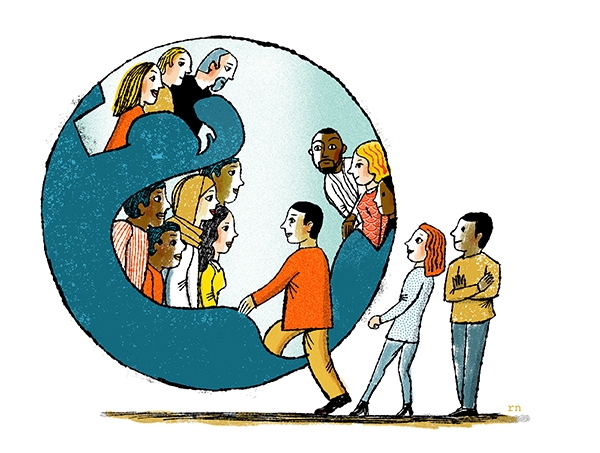Faculty Advice: Where to Go and What to Do?
| by Jason Warburg

We’ve asked six faculty members the following: “In these tumultuous times, where do you see your students being able to have the greatest impact over the next few years?”
Middlebury Institute students will work in a world that has exposed, elevated, and normalized inequity with a renewed openness to hatred, marginalization and exclusion. Their studies in administration, business, education, language, and policy are essential tools for confronting injustice. These tools, especially intercultural competence, (knowledge of self, sensitivity to others, ability to bridging across difference, and drive to engage in meaningful reciprocal exchange), will allow MIIS students to unveil the causes of structural inequity, challenge those who dehumanize, and operationalize responsive transformative solutions. – David Wick, Assistant Professor of International Education Management
As an adjunct, I am proud that I teach my students quantitative skills that will help them make thoughtful policy decisions no matter where they go in life. Many schools can turn out graduates who can write a memo, but MIIS is special because it gives them the ability to find, analyze, and present data in a compelling way – and probably in multiple languages! – Melissa Hanham, Adjunct Professor of Nonproliferation and Terrorism Studies and Senior Research Associate at the James Martin Center for Nonproliferation Studies
As the level of globalization becomes deeper and wider, so does the impact that translators, localizers, and interpreters can make on cross-cultural communications. Being language service providers, we stand at a critical moment where more and more people and industries rely on our expertise to function properly. These include government agencies, international and non-governmental organizations, hospitals, courts, major global corporations, social media websites, crowd-sourcing companies, charities, etc. We facilitate cultural convergence and help the world transcend linguistic boundaries. – Wallace Chen MATI ’95, Associate Professor and Program Coordinator of Chinese Translation and Interpretation
Students in the TFL and TESOL programs are learning to design language education experiences that foster the development of intercultural communicative competence and critical thinking. In these tricky times, learning additional languages and seeing the world through others’ eyes could not be more vital. Furthermore, critical thinking skills are key tools in the quest for social justice. Institute TFLers and TESOLers are poised to make an impact by the very nature of what they are learning to do. – Jason Martel Midd MA French ’03, Assistant Professor of Teaching English to Speakers of Other Languages / Teaching Foreign Language (TESOL/TFL) and Associate Director of the Summer Intensive Language Program
What sets MIIS apart from other U.S. graduate schools is the ability of our graduates to employ their advanced foreign language skills in professional activities. This skill set is developed in a multicultural/multilingual environment in which part of the formal learning process involves empathy in interpreting and understanding different international political perspectives. I want to see my past and present students break out of the prevailing ideological mold, abandon group think, and base their analyses on the unbiased multilingual study of pressing international issues. – Anna Vassilieva, Professor of Russian Studies and Director of the Graduate Initiative in Russian Studies
During my 25 years at MIIS, it has been my honor to teach some of the most dedicated young professionals in the world in the fields of evaluation, and security and development. These students go forth knowing how to plan for and execute programs that have impact, because they know impact when they see it. They believe in evidence-based programs and policies. They will be courageous change agents who will succeed in reducing and preventing the insecurity, conflict, and violence that impede development. – Ed Laurance, Professor and Gordon Paul Smith Chair in International Policy and Development, and Former Dean of the Graduate School of International Policy Studies
